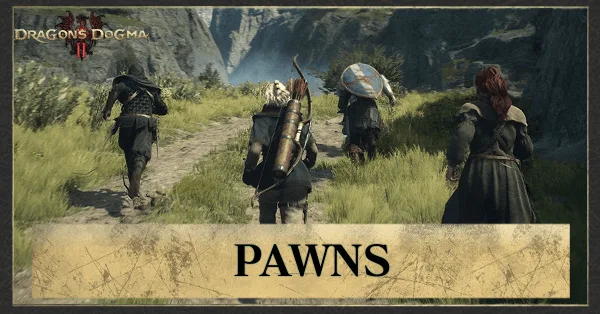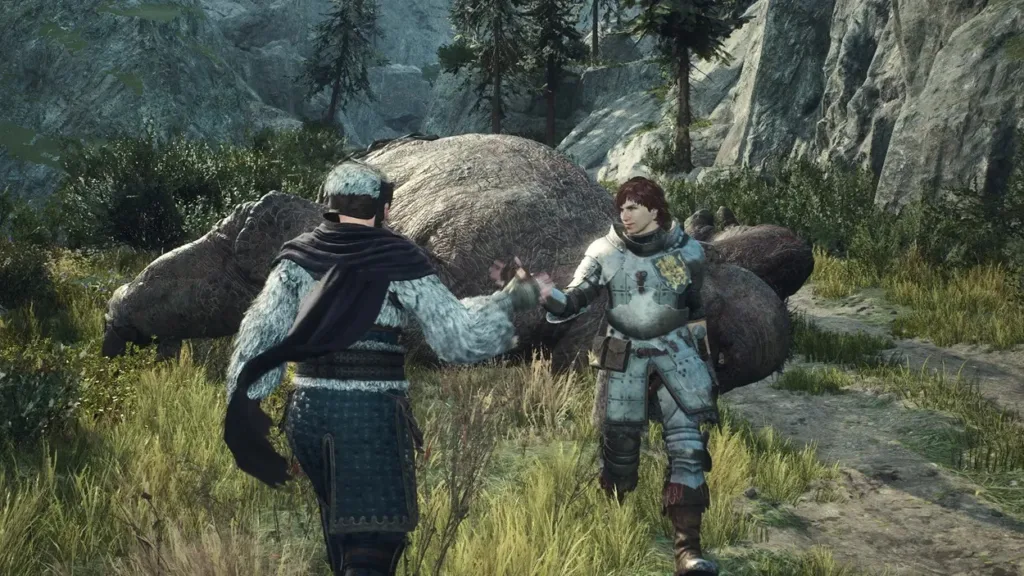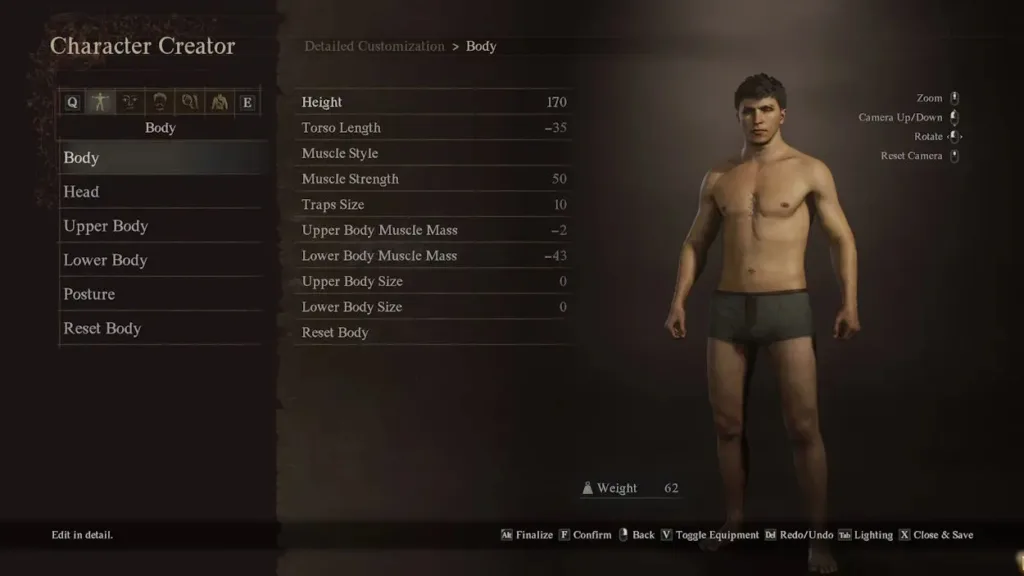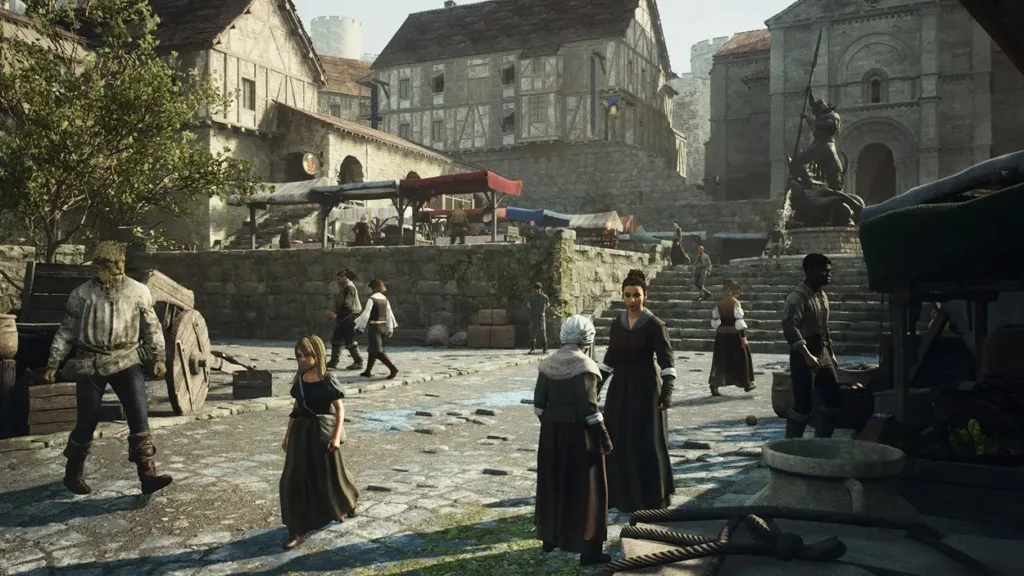
Dragon’s Dogma 2 features an AI-controlled companion system called Pawns, which has left many new players scratching their heads.Pawns are a fundamental aspect of the Dragon’s Dogma series, playing an essential role in shaping the game’s experience. As the release time for Dragon’s Dogma 2 draws near, here’s a comprehensive guide on the Pawn system, including Pawn inclinations, their Vocations, and more.
Understanding Pawns in Dragon’s Dogma 2

Pawns are the unique AI-controlled player companions in Dragon’s Dogma. At the start of the game, the Arisen (players) are introduced to Pawns, who are beings lacking emotion or true will. Pawns are loyal followers of the Arisen and are tasked with helping them in and out of combat.
Players can customize the appearance of their Pawns and equip them with weapons and armor. Pawns also have a Vocation, the class system of Dragon’s Dogma, and players can equip Skills for their Pawns, customizing them to assist as desired in combat.
The Importance of Pawns in Dragon’s Dogma 2
The Pawn system in Dragon’s Dogma 2 is different from normal AI companions in other games. Pawns provide out-of-combat help, like giving hints on enemy weaknesses, showing quest paths, or offering helpful tips. Additionally, they engage in combat alongside the Arisen and strategically target enemy weaknesses with their attacks if they’re aware of them.
Pawns specializing in support vocations, such as Mages, possess the ability to heal allies and dispel status effects using their spells. Furthermore, other support skills like Springboard can propel players into the air, aiding in accessing challenging areas or engaging flying adversaries. They can do all this reactively, which is pretty unique. Pawns can also help carry items, a big help when you have a lot of loot.

In Dragon’s Dogma, Pawns constantly gain information while journeying, like enemy weaknesses, quest information, or chest locations. Additionally, players will be able to teach their Pawns Specializations, allowing them to perform more helpful tasks.
For example, Pawns with the Woodland Wordsmith specialization can translate Elvish, enabling easier communication with Elves. There are other Specializations for specific tasks, like managing inventory or combining items.
Dragon’s Dogma 2 doesn’t have co-op multiplayer, so Pawns provide companionship, allowing players to have a classic 4-party D&D experience.
Limit of Pawns Usage in Dragon’s Dogma 2

In Dragon’s Dogma 2, every player can create one main Pawn and recruit two other Pawns for their party. In total, every player can have a maximum of 3 Pawns, with one being their main pawn.
Players can change the two recruited Pawns at any time using Rift Stones. Importantly, recruited pawns do not earn experience points from defeating enemies. However, you have the option to equip them with various gear to enhance their capabilities.
Dragonplague: Effects on Pawns in Dragon’s Dogma 2

Dragonplague is a new mechanic in Dragon’s Dogma 2, which only affects pawns traveling between worlds. This is a type of illness that makes Pawns display remarkable performance. Pawns afflicted with Dragonplague exhibit noticeably bold speech and behavior.
How this illness will act in the game is still unknown, and we will add more information after the game’s release.
Pawn Vocations in Dragon’s Dogma 2

Like the Arisen, Pawns also have Vocations. Players can set the Vocation for their main pawn and change them later in-game. Pawns will also need to level up their Vocations to unlock Skills and can do so by gaining experience in combat.
Unlike the Arisen, Pawns only have access to 6 vocations:
- Fighter
- Mage
- Archer
- Thief
- Sorcerer
- Warrior
Creating a Pawn in Dragon’s Dogma 2: Step-by-Step Guide

In Dragon’s Dogma 2, players will have the opportunity to create their main pawn at the beginning of the game, whereas in the previous installment, players could create the main pawn after completing the starter mission. In Dragon’s Dogma 2, players can create their pawn using the Character Creator.
The process of creating the Pawn is akin to that of the Arisen, albeit with a few additional options.In the character creator, players can customize how their Pawn looks and set their Vocation. Moreover, players must set the Pawn Inclination during the creation of their main Pawn.
Understanding Pawn Inclinations and How to Adjust Them

Pawn Inclinations represent the initial set of behavioral traits for your main Pawn.There are four Pawn Inclinations in the game — Kindhearted, Calm, Simple, and Straightforward. These inclinations set how your Pawn talks and behaves in-game.
Kindhearted: This inclination will make your Pawn emphasize aiding allies. Pawns with this inclination are very obedient and favor a balanced approach with an emphasis on support.
Calm: This inclination will make your Pawn employ clever tactics to survive. Pawns with this inclination are cautious and favor defense and evasion.
Simple: This inclination will make your Pawn gather items and explore. Pawns with this inclination are curious and have their heart on their sleeves.
Straightforward: This inclination drives your Pawn to confront formidable adversaries directly. Pawns with this inclination are candid, impulsive, and relish the excitement of battle.
Selecting the appropriate inclination alongside the vocation is crucial depending on the role you envision for your main Pawn. Setting their inclination as Straightforward when you want them to serve as support can lead to unfortunate outcomes. Additionally, vocations are not permanent upon Pawn creation and can be altered later in the game.
Is it Possible to Alter Pawn Vocations in Dragon’s Dogma 2?

In Dragon’s Dogma 2, players have the ability to set and alter the vocation of their main Pawn. However, the vocation of recruited Pawns cannot be changed. The process of setting and changing vocations for the main pawn is straightforward. Players can select the vocation during the Pawn creation process, alongside their inclinations. Additionally, they can change their main Pawn’s vocation in-game by visiting the Vocation guilds.

Usually I do not read article on blogs however I would like to say that this writeup very compelled me to take a look at and do so Your writing taste has been amazed me Thanks quite nice post